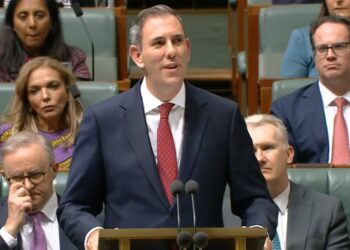With changes such as events-based reporting and the introduction of a transfer balance cap, on-time lodgement has become an even bigger priority issue for the tax office in regulating the SMSF sector. It is always high on the ATO’s watchlist, despite the sector being largely compliant.
“We are doing an undertaking of audits on a significant number of funds in relation to the fact that they have been consistently not reporting to us,” outgoing superannuation director at the ATO, Howard Dickinson, told the SMSF Summit in Adelaide last week.
“Some of those funds are sitting there with advice to them sitting there saying ‘we are now proposing that they are made non complying’. I assume that all of you know non-complying outcomes, but I shall re-state it for the purpose of being very obvious: 50 per cent of the fund goes to the government, goodbye.”
Mr Dickinson stressed that professionals with clients in this situation should come to the ATO to discuss their circumstances. In situations where there is “not a lot” that the ATO can do, the chances of a resolution or a more favourable outcome are still higher where there is early engagement.
“We don’t want to make these people non-complying and we don’t want to disqualify them. But we cannot allow a significant number – about 40,000 funds with over $600,000 – of the population to continue to think they are operating as a fund,” Mr Dickinson said.




I’ve seen accountants complete a tax return, establish a SMSF and hand out a chocolate shake and fries all in a compulsory 15 minute tax return meeting. Pretty obvious how we got into this situation.
It’s ironic that two of the biggest fads at the moment are SMSFs and Fintech.
But if you applied Fintech to SMSFs, you would end up with a standard commercial super fund.
No, you end up with an SMSF that operates to 21st century technology, not some cottage industry as happens now with many suburban accountants. We have come across a great SMSF admin provider that gives great service, 24/7 online access for clients and advisers and great tools to assist the adviser in the advice they give clients. And super cost effective to boot. It can be done because it is being done.
Totally agree. Most SMSFs are completely unnecessary. They have proliferated because they are a great little earner for accountants, and accountants are effectively exempted from any obligation to provide appropriate advice in clients best interest.
In complete agreeance, most people cannot handle it. I say this at a lot of seminars, and people look at me weird. I actually make would be smsf trustees take an exam, ironically, developed by the accounting bodies, it’s free at http://www.smsftrustee.com/cpa/htm/home.asp
and of course they must get a perfect score before I set one up for them and they have to provide me with a certificate of course completion 😀
There are too many people in Australia that are trustees of SMSFs. There is no way known that such a large number of people can manage their superannuation in an effective manner that will see them better off compared to having their funds in an industry or retail offering.
I see reports about how the number of complaints regarding SMSF advice has dramatically increased, but how about we get back to the root cause. How are so many SMSFs being established in the first place?
As an adviser, if I am not involved in the establishment of an SMSF or cannot see that it is an appropriate vehicle for the person in front of me, I will tell them that I cannot help them and am not afraid to tell people they should not be in an SMSF.
I have seen clients of ours depart with balances as low as $120,000 combined (husband and wife) because their accountant told them to setup an SMSF – their words not mine.
It really is a diabolical situation and needs to be addressed urgently.